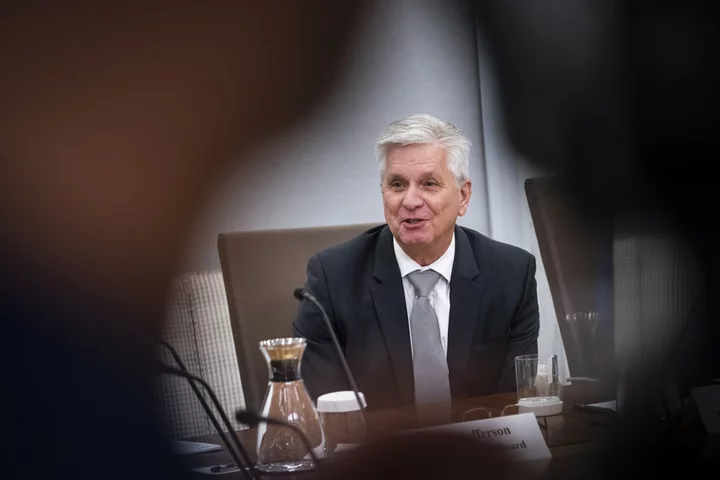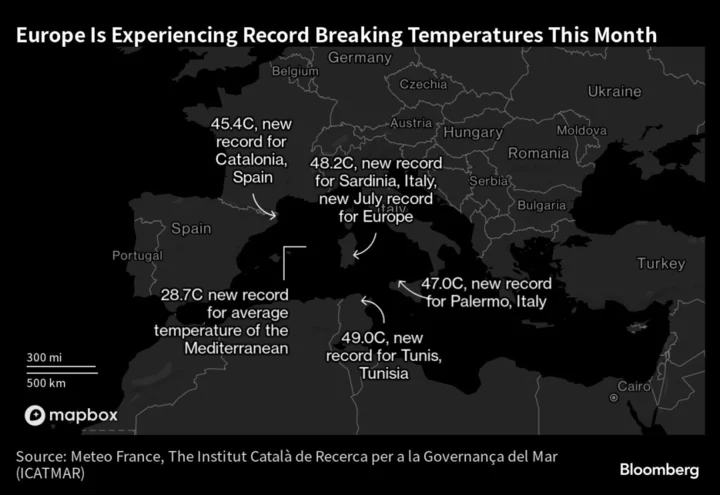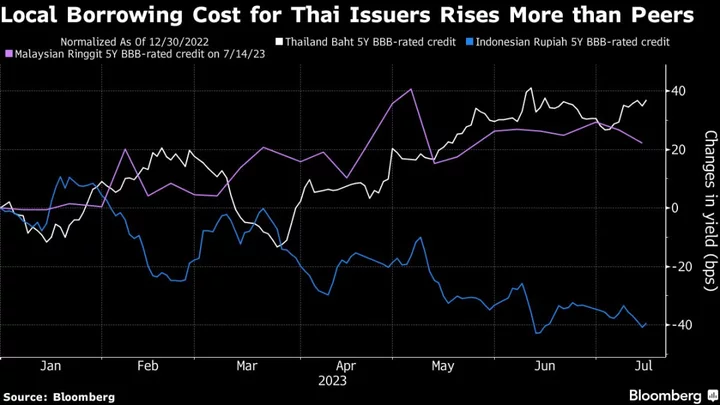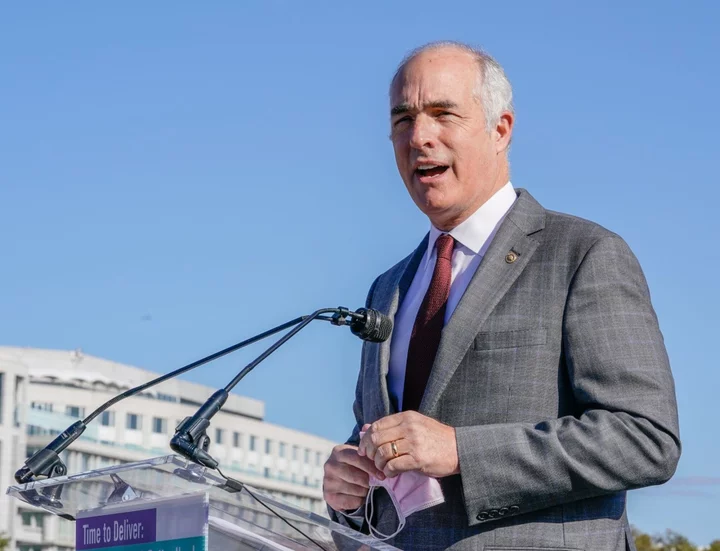German inflation eased more than forecast in November on retreating energy and travel costs, putting the European Central Bank’s 2% target within reach.
Consumer prices rose 2.3% from a year ago — down from 3% in October and less than the 2.5% estimated by economists in a Bloomberg survey. They fell 0.7% on the month, with package tours alone responsible for 0.15 percentage point of the decline.
The numbers follow a similar slowdown in Spain, which reported a softer-than-expected reading earlier Wednesday. Data for France, Italy and the 20-nation euro zone are due Thursday. Inflation in the latter is seen moderating to 2.7% — the lowest level since July 2021.
While providing positive news for the ECB, the figures are unlikely to prompt officials to sound the all-clear as they prepare for their final policy meeting of 2023.
President Christine Lagarde reiterated Monday that inflation remains too high and has been so for too long. What’s more, price pressures are widely anticipated to pick up again from December as statistical effects play out.
New ECB projections available Dec. 14 will offer insight into how quickly — and sustainably — inflation is likely to return to 2%. That should help policymakers shape their plans for next year, with investors betting on rate cuts as soon as April.
In Germany, Bundesbank President Joachim Nagel has warned against letting up on the inflation fight too soon. Officials can’t assume that price pressures will continue easing as rapidly as they have been during the past year, he said Tuesday.
Inflation in Europe’s largest economy is set to fluctuate around its current value, the Bundesbank said in its latest monthly report. While food is likely to damp price pressures, services will probably remain a driver and energy may be too on base effects.
--With assistance from Kristian Siedenburg and Joel Rinneby.









